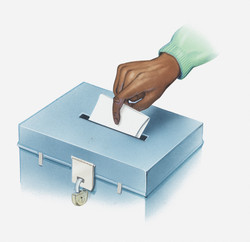Theory of voting power
Recent additions to the EU have forced a reconsideration of measures of voting power. Yet, such statistical tools may reflect a greater randomness and lower realism than generally believed. The EU-funded SWEAC (The strong, the weak and the cunning: Power and strategy in voting games) project aimed to refine the indices describing voter power. The two-member project intended to develop more accurate power indices applied to a number of real situations, including the EU's Council of Ministers. The project ran between September 2008 and September 2011. In the first of three applications, the team considered strategic voting games. Certain predictions of conventional power indices are considered counterintuitive or paradoxical. SWEAC examined a type of strategic voting game where voters increase their power by not cooperating. The team introduced two alternative models, giving different conclusions despite otherwise minor differences. Results from both suggested a modification to power indices, whereby only minimal winning coalitions able to sustain surpluses might benefit from quarrelling. The work also produced a way to compute power indices directly. SWEAC also considered methods for ranking economics journal papers using a tournament approach. It seems that journals can improve their ranking by manipulating other citations. The team also suggested an invariant method that avoids the problem of article splitting. The final area of study involved gradual coalitions where membership is not certain or fixed, as related to generalised weighted voting games. Conclusions concerned the EU Council of Ministers. It seems that the Lisbon Treaty increases the decision probability, but that benefits are not equal. Medium-sized countries with shrinking populations, such as Hungary, suffer the biggest losses. Further outcomes reflect power distributions in international organisations, and the potential benefits of countries joining different groups. A new model explains the difference between the EFTAn (1995 EU enlargement round) and eastern extensions to the EU. The SWEAC coalition studied voter power with respect to game theory. The conclusions reflect operations of the EU.



